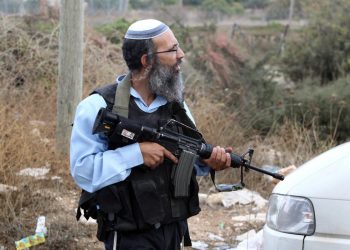Human Lives Human Rights: Iraq has experienced numerous coups throughout its history, resulting in significant bloodshed, violence, and wars. Additionally, the country has been plagued by severe human rights violations at various times. One of the most notorious periods of human rights abuses in Iraq was during Saddam Hussein’s twenty-four-year rule.
After assuming power in 1979, Saddam Hussein established a dictatorial regime characterized by widespread human rights abuses. One notable incident occurred on June 22, 1979, just six days after Saddam ousted Ahmad Hassan al-Bakr from the presidency of Iraq through a gradual coup. During a meeting of the Baath Party, Saddam ordered the expulsion of 66 of his opponents. These individuals were subsequently handed over to death squads by Saddam’s guards.
One of the significant human rights violations committed by Saddam Hussein’s regime was the initiation of the imposed war against the Islamic Republic of Iran. In this war, apart from targeting Iranian military forces and facilities, Saddam’s regime also attacked civilian areas and Iranian citizens, in clear violation of numerous international conventions and humanitarian rights standards. As a result, a large number of innocent Iranian civilians lost their lives as martyrs during this conflict.
An essential aspect of the Iraqi Ba’ath regime’s invasion of Iranian territory is that it directly contravenes Article 2, Clause 4 of the United Nations Charter, which prohibits the use of force in international relations. This attack by Iraq on Iran clearly violated this fundamental principle established by the UN Charter.
While Iraq had sporadically targeted residential areas and cities of the Islamic Republic even before the onset of the imposed war, these attacks escalated in intensity and scope following the invasion of Iraqi army forces into Iranian territory.
On September 24, 1980, the city of Ahvaz experienced the devastating attacks of Iraqi “MIG” planes. These airstrikes resulted in the tragic loss of many civilian lives and injuries, as well as the destruction of numerous residential houses. The resilient city of Ahvaz, which became a target for thousands of bombs and rockets during the imposed war, faced its first attack on October 8, 1980, when four Iraqi MiG planes carried out a strike. This particular attack claimed the lives of 70 civilians and left 30 others injured. The following day, the city of Dezful was targeted in another attack, resulting in the tragic loss of 20 lives and leaving 60 individuals injured.
In addition to the aerial bombardments, the Iraqi regime also inflicted significant casualties among civilians through rocket attacks. On October 9, 1980, the first ground-to-ground missile, measuring 9 meters in length, was launched in the city of Dezful. Tragically, this attack resulted in the loss of 105 lives and left 306 individuals injured.
Throughout the imposed war, attacks using airplanes, missiles, and long-range artillery were carried out repeatedly, causing immense devastation. The table below attempts to provide a partial reflection of this grim reality by presenting statistics and numbers. The attacks on cities can be categorized into three periods: 1980 to 1982, 1983 to 1984, and 1985 to 1988, which marked the end of the imposed war. It is important to note that during the holy defense period, more than 76,873 individuals were martyred or injured as a result of enemy attacks on 127 cities. This indicates an average of 16 individuals being martyred or wounded in each attack.
The bitter and alarming reality is that despite Saddam’s criminal regime launching attacks on the Islamic Republic of Iran from various fronts, including land, air, and sea, and committing atrocities such as destroying villages and showing no mercy towards defenseless women and children, the international community, including countries and international assemblies, failed to raise their voices in defense of human rights. Their meaningful silence inadvertently encouraged the aggressor enemy to continue killing and plundering with impunity.


















